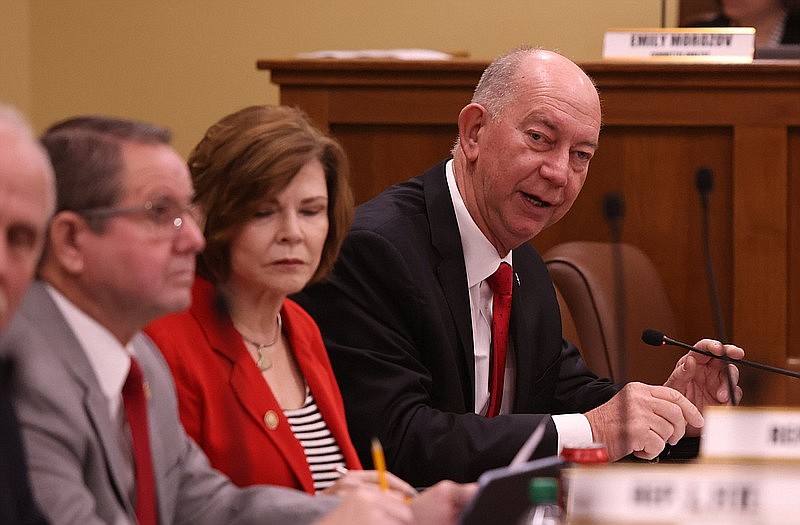LITTLE ROCK -- The House Education Committee approved a bill Thursday night to overhaul how the state funds public education.
During a marathon meeting, the committee approved House Bill 1689, sponsored by Rep. Bruce Cozart, R-Hot Springs, that will create a new formula for how the state funds public schools. The bill is scheduled for a vote in the House of Representatives on Monday.
If approved, school districts would receive a per-pupil base funding, and then additional weighted funding based on a variety of factors such as the number of special needs students, district size, population density or poverty. Cozart said the bill is based on how Tennessee funds public education.
The state's funding formula is based on a school district with 500 students with schools receiving dollars on a per-student basis, taking in how much it should spend on teacher salaries, transportation and facilities, among other items. The current funding formula is flawed, Cozart said, as districts with fewer than 500 students are significantly underfunded when compared to their larger counterparts.
"We have so many small districts that are underfunded because of that," Cozart said.
The proposed formula calls for schools to receive additional funding for each student who is economically disadvantaged, resides in a small district, is in a sparsely populated area or experiences concentrated poverty. But exactly how it will work would be worked out at a later time, when lawmakers meet out of session.
"You've got two years before this has or will become law," Cozart said. "If it's not going to work we can kill it," Cozart said. "There's a safeguard on it."
But upending the current funding formula has some superintendents concerned, Executive Director of the Arkansas Association of Educational Administrators Mike Hernandez told the committee. School districts with few students in living in poverty or special education programs could stand to have their funding reduced, Hernandez said.
"It sounds like we're wanting to keep the same [spending], and if that's the case then there are going to be some significant winners and losers," Hernandez said.
Cozart said he could not answer how the funding would change for individual schools, saying lawmakers and state government officials would spend the next two years developing new rules to allocate. The bill would not affect the state's proposal for funding schools for the next two years, which the committee also advanced Thursday.
If passed, Cozart's bill would not take effect until the 2025-26 school year. Arkansas' current funding formula for education dates back to the Supreme Court's ruling in Lake View School District v. Huckabee in 2002, finding the state's public school funding was inadequate and unconstitutional.
Every two years lawmakers on the House and Senate education committees vote on recommendations on how to fund public schools. On Thursday, the House Education Committee agreed on a $75 million increase in funding for public education for the next school year. The bill is less than what lawmakers recommended in the fall as part of the adequacy process, but will fund a cost-of-living adjustment for teachers and raises for school staff.
House Bill 1688 would increase the per-student foundation funding by $205 to $7,618 for the 2023-2024 school year. For the 2024-2025 school year, the legislation calls for the per-student funding to increase to $7,771. The per-student foundation funding for the 2023-2024 school year is $7,413.
The bill will fund a $2-an-hour increase for classified full-time staff, which includes custodians, bus drivers, nurses and special education paraprofessionals, as well as a 1.8% cost-of-living adjustment in fiscal year 2024 and a 2.2% increase in fiscal year 2025. The bill moves to the House of Representatives on Monday for a vote.
